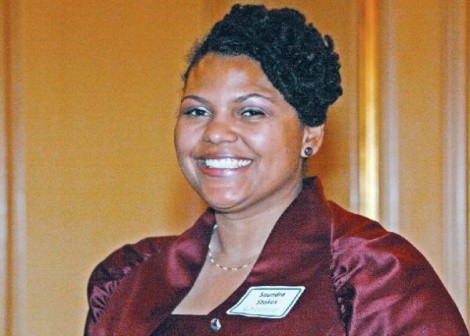
Saundra Stokes, associate director of The Inclusion Center at Westminster College, is an “experiential” educator responsible for starting dialogues about oppression, discrimination, classism and racism. A panelist at a recent Black History Month forum, Stokes explains why it’s important for all to reflect on black history.
What does Black History Month mean to you?
Growing up in the standard education system and participating in society, I dreaded my history, even though there wasn’t much of it in school—maybe chapter seven about slavery in some history book.
If it wasn’t for my parents, I wouldn’t have gained any sense of my history. And, now, I think it’s crucial for us today—post-civil rights—as a reminder of what we’ve been through and where we’re going.
So, why celebrate black history?
To keep current, future and past generations connected to an identifiable history.
But, the reasons have morphed over the years, from a space of “I’m here. I’m present. See me.” to educating the public about an ethnic group that has contributed just as much to America’s history and, also, just relating information. For instance: George Washington Carver created over 100 ways to use the peanut.
Is it more important to celebrate accomplishments, as opposed to reliving horrors?
There’s a balance. The strife needs to be relived so it’s not forgotten, and the celebration can be a way of empowering. Look, not only bad came out of the situation, something good came out of historical indifference. The accomplishments help downplay stereotypes, but that will never totally override those. What will is empathy.
What stereotypes have you faced in Salt Lake City?
After moving here when I was 12, I would catch on to little things, like someone saying, “It must be hard being black in Utah, because ...” fill in the blank.
In general, Utah is a polite state, but during interactions, casual conversations or going out, little things happen, like, I get stared at constantly. Sometimes, people grab their pocketbook.
I’d ask myself: Is this about my character? Who I am as a person? No. I concluded it’s about being a black woman in Utah, where there aren’t many black folks in total.
How can people broaden their understanding?
Be open to all people. I check myself when I make an assumption or flash judgment. I think about my part in creating what I want. Also, seek opportunities to learn.
By going to different communities, I can appreciate the differences in others, instead of seeking similarities.